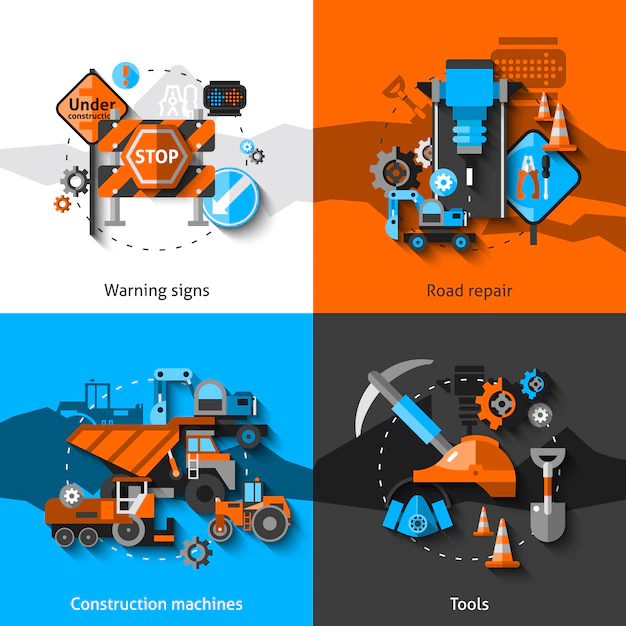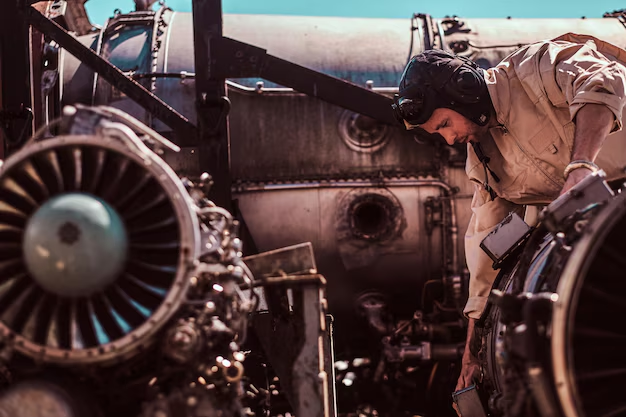The Guide to Preventing Machinery Breakdowns
Machinery breakdowns are a common headache in the industrial sector. They can lead to costly downtime, disruptions in production, and hefty repair bills. For industrial maintenance technicians, students, and engineers, understanding the root causes of these breakdowns is crucial to keeping operations running smoothly. This blog post will explore the common causes of machinery breakdowns and provide practical tips on how to prevent them, ensuring your equipment operates efficiently and reliably.
The Impact of Machinery Breakdowns
Machinery breakdowns can halt production lines, leading to significant financial losses. In industries where time is money, even a short period of downtime can impact profits. Beyond the immediate financial implications, frequent breakdowns can erode customer trust and damage a company’s reputation for reliability. Understanding the underlying causes of breakdowns is the first step in creating a proactive maintenance strategy.
Wear and Tear Over Time
One of the most common causes of machinery breakdowns is simple wear and tear. Over time, components within machines experience friction, leading to gradual degradation. Regular maintenance and inspections can help identify worn parts before they cause a breakdown. By replacing parts that show signs of wear, technicians can prevent more significant issues down the line and extend the lifespan of the machinery.
The Role of Lubrication
Lubrication plays a critical role in machinery maintenance. Inadequate lubrication can result in increased friction, leading to overheating and accelerated wear. Ensuring that machines are properly lubricated can reduce the risk of breakdowns. Technicians should regularly check lubrication levels and use the correct type of lubricant for each specific machine to maintain optimal performance.
Electrical System Failures
Electrical system failures are another common cause of machinery breakdowns. Faulty wiring, damaged electrical components, and power surges can all disrupt operations. Regular inspection of electrical systems and components is essential. Ensuring that wiring is intact and that sensitive components are protected from power fluctuations can help prevent unexpected electrical failures.
The Importance of Calibration
Machinery that is not correctly calibrated can experience performance issues, leading to breakdowns. Calibration ensures that machines operate within their intended specifications. Regular calibration checks can help detect deviations from these specifications and allow for adjustments before significant damage occurs.
Hydraulic System Malfunctions
Hydraulic systems are commonly used in industrial machinery due to their power and precision. However, they can be prone to malfunctions if not maintained properly. Contaminated hydraulic fluid, leaks, and worn seals are common issues. Regular hydraulic machinery repair in Utah can help maintain the integrity of these systems, ensuring they function smoothly and reducing the risk of breakdowns.
Overloading and Misuse
Machines are designed to handle specific loads and tasks. Overloading a machine or using it for unintended purposes can lead to premature breakdowns. Training employees on the correct use of machinery and monitoring operations to prevent overloading are essential steps in preventing unnecessary wear and tear.
Vibration and Alignment Issues
Vibration and misalignment can cause excessive stress on machinery components, leading to failure. Regular vibration analysis and alignment checks can identify issues before they escalate. Correcting misalignment and addressing excessive vibrations can prevent damage and ensure smooth operation.
Temperature and Environmental Factors
Extreme temperatures and harsh environmental conditions can impact machinery performance. High temperatures can cause overheating, while cold environments can lead to brittleness in certain materials. Protecting machines from extreme weather and ensuring proper ventilation and insulation can mitigate these risks.
The Role of Training and Knowledge
Proper training for maintenance technicians and operators is crucial in preventing machinery breakdowns. Understanding how machines work and recognizing early signs of issues can lead to prompt interventions. Ongoing training programs can ensure that staff stay updated on the latest maintenance techniques and technologies.
Implementing a Preventive Maintenance Program
A proactive approach to maintenance can significantly reduce the likelihood of machinery breakdowns. Implementing a preventive maintenance program involves regular inspections, timely repairs, and a focus on predictive maintenance. By addressing potential issues before they become significant problems, companies can minimize downtime and extend the life of their machinery.
Investing in Quality Parts
Using quality replacement parts is essential for maintaining machinery reliability. Cheap or counterfeit parts may offer short-term savings but can lead to more frequent breakdowns. Investing in genuine, high-quality components ensures that machines operate as intended and reduces the risk of unexpected failures.
Monitoring and Data Analysis
Modern technology allows for continuous monitoring and data analysis of machinery performance. Sensors can detect anomalies and provide real-time feedback on machine health. By analyzing this data, maintenance teams can identify patterns and trends, enabling them to predict and prevent potential breakdowns.
Collaborating with Experts
When dealing with complex machinery, collaboration with industry experts can provide valuable insights. Consulting with specialists in hydraulic machinery repair in Utah, for example, can lead to more effective maintenance strategies. Experts can offer guidance on best practices and help address unique challenges faced by your machinery.
Conclusion
Preventing machinery breakdowns is essential for maintaining productivity and profitability in industrial settings. By understanding the common causes of breakdowns and implementing proactive maintenance strategies, industrial maintenance technicians, students, and engineers can ensure machines run smoothly and efficiently. Investing in regular maintenance, quality parts, and ongoing training will pay dividends in the long run by minimizing downtime and maximizing equipment lifespan.






